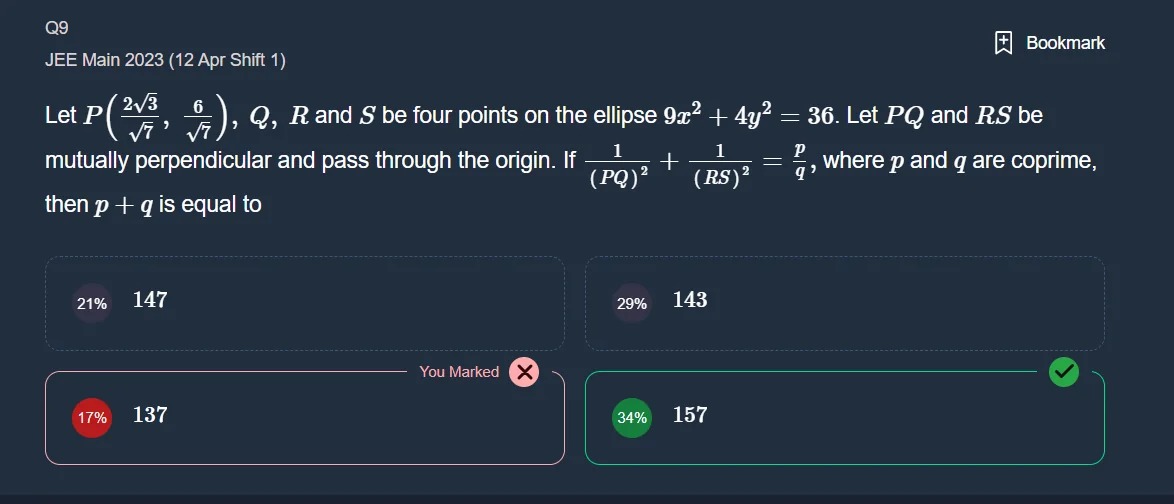Question
Question: Let $P(\frac{2\sqrt{3}}{\sqrt{7}}, \frac{6}{\sqrt{7}})$, $Q$, $R$ and $S$ be four points on the elli...
Let P(723,76), Q, R and S be four points on the ellipse 9x2+4y2=36. Let PQ and RS be mutually perpendicular and pass through the origin. If (PQ)21+(RS)21=qp, where p and q are coprime, then p+q is equal to

A
147
B
143
C
137
D
157
Answer
157
Explanation
Solution
Solution Explanation
- Rewrite the Ellipse
The ellipse is given by
- Chord through P
Given P(723,76). Its line through the origin has slope
Substitute y=3x in the ellipse:
4x2+93x2=4x2+3x2=127x2=1⇒x2=712.Thus, length PQ=2712=783 and
(PQ)2=7192⇒(PQ)21=1927.- Perpendicular Chord RS
Since RS is perpendicular to PQ, its slope m′=−31. Using y=−31x in the ellipse:
So, chord RS has endpoints (±31108,∓331108). Its length is
RS=231108=3124,giving
(RS)2=31576⇒(RS)21=57631.- Sum the Reciprocals
Here, p=13 and q=144 (coprime), so
p+q=13+144=157.Answer:
157(Option 34% 157)Subject, Chapter, and Topic:
- Subject: Mathematics
- Chapter: Conic Sections
- Topic: Ellipses
Difficulty Level: Medium
Question Type: single_choice
